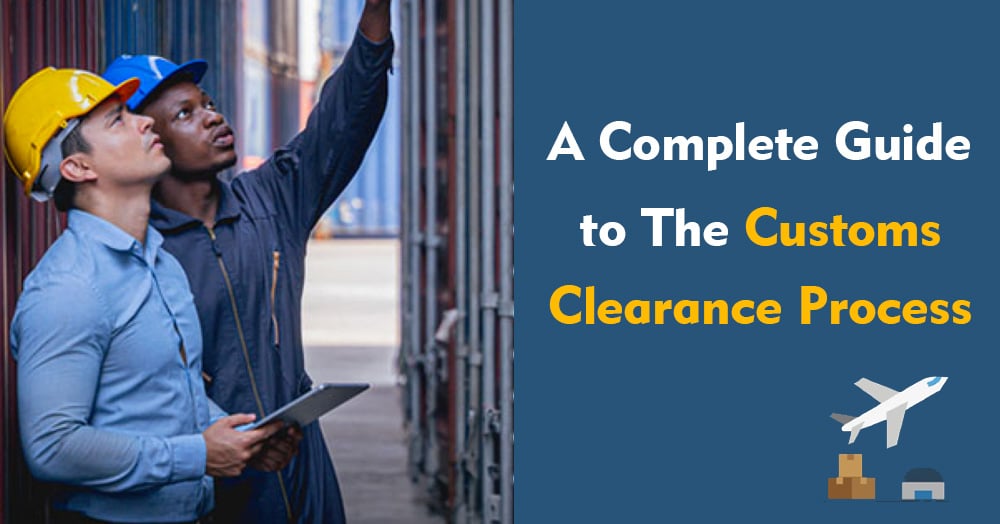
The Customs clearance process is one of the most complicated processes, or we should say tedious processes involved in international shipping, especially for companies shipping on international markets and for small and medium-sized enterprises.
What is the best way to smooth customs clearance? Besides filling out export documents correctly and consistently, there is a lot of work to do to deliver your international shipments on time and without penalties.
Our complete guide to the customs clearance process can help you understand the process and get you through your next international shipment with peace of mind.
What Is Customs Clearance Process?

In short, the customs clearance process is the process of allowing goods to be imported or exported to a country. However, it is not that simple!
The customs clearance process includes the submission of documents representing the business at the time of customs examination, assessment, payment of customs duties, and joint pickup of the goods from customs after clearance by customs authorities.
It is important to know that the customs clearance process varies from country to country, so it is vital to understand the customs clearance process in the country with which you are doing business.
How Does the Customs Clearance Process Work?
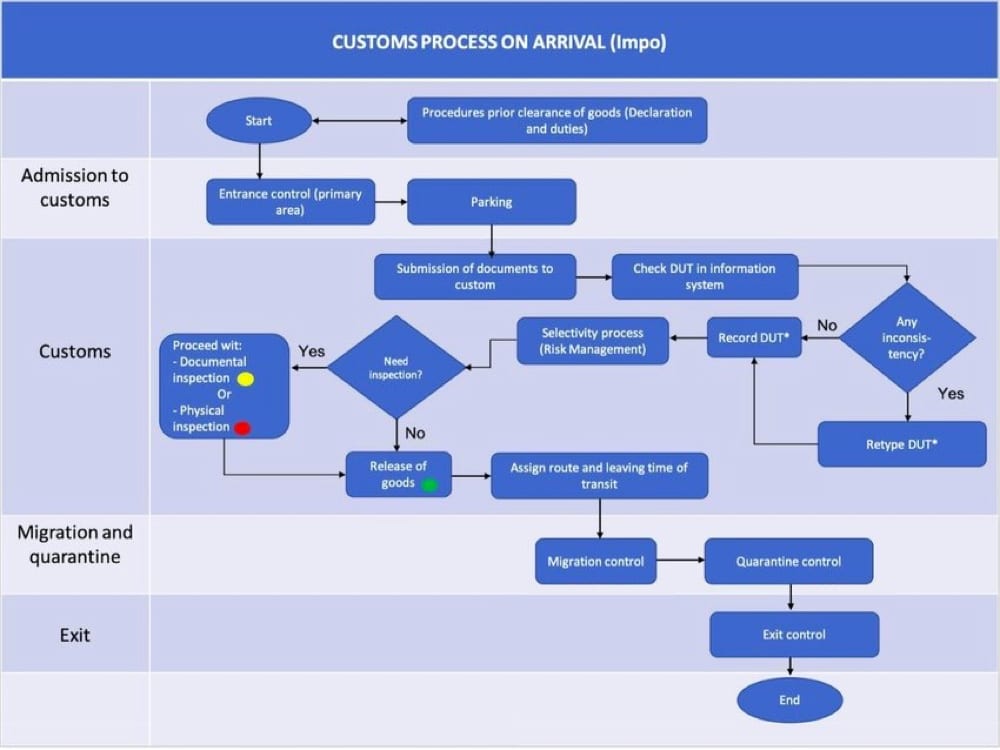
Before the goods are shipped out and leave the port of origin, the customs clearance process ensures that the goods and products pass through the customs authorities, who then process the export clearance.
Similarly, import clearance is required for the entry of goods into the port of destination.
A standard customs clearance process should include these steps:
- Confirmation of tax information of the importer and exporter
- Identification of the import origin and export destination and means of transportation
- Detect details of the shipment, including quantity, volume, description of the goods/products, source, and manufacturing company
- Clarify the inspection requirements for the shipment and obtain certification to confirm that the product in the shipment passed control checks
- Clear the taxes
What Does the Customs Clearance Process Cost?
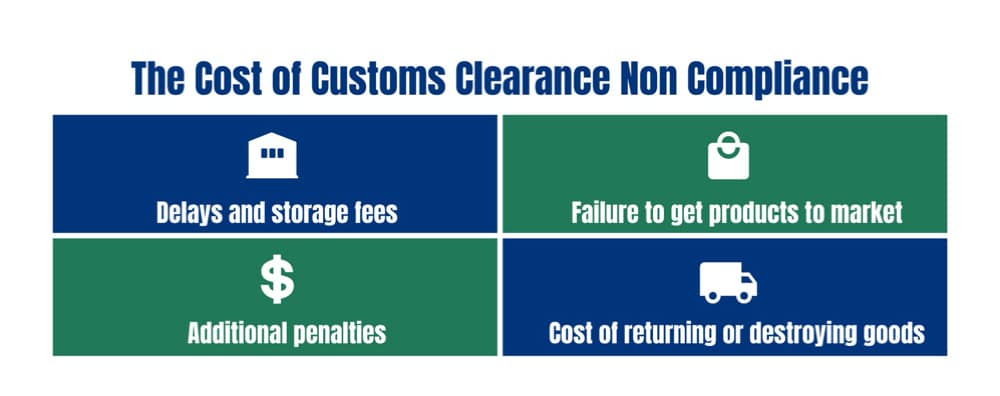
When it comes to costs incurred in the customs clearance process, you will generally pay the following:
1. Import duties
The percentage of the declared value you pay will depend on the product’s classification code and country of origin.
You may learn more about Import Duty from China for details below:
Import Duty from China Guide 2022: How to Calculate Them?
2. Customs clearance fees
A broker oversees the customs clearance process, completes and files the necessary paperwork on your behalf, and acts as your expert partner to help ensure your company remains compliant.
External broker fees will vary depending on the complexity of your product and the services provided.
3. Inspection Fees
If your shipment is a small portion of an imported shipment that has been physically inspected and there is a delay of several days in the process, then you will pay for the privilege.
These inspection fees vary greatly depending on the type, location, and scope of the examination.
You may learn more about China Inspection Service for details below:
China Inspection Service: Top 60 Inspection Companies in China
4. Payment to Regulatory Agencies
If your product is regulated by an agency other than Customs, you may need additional fees and paperwork to clear the customs.
How Long Does the Customs Clearance Process Take?
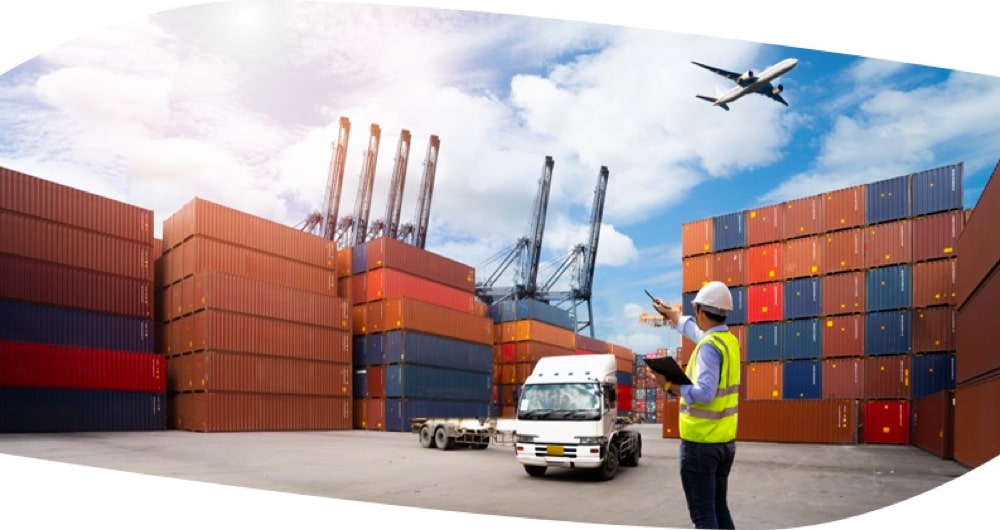
In most cases, the customs clearance process is quick and usually takes no more than 24 hours. However, if documents are missing or the shipment needs to be inspected, it may be extended by a few days or weeks.
In such cases, the shipment will be held until the necessary documentation is provided or customs officials complete their inspection.
The best way to avoid these delays is to make sure in advance that all documentation is present and correct.
Some common reasons for possible delays in the customs clearance process include:
- Incomplete shipping documents
- Incorrect product codes
- Product descriptions that are too vague or written in the wrong language
- Incorrect value or quantity
- Seasonal holidays, such as Lunar New Year or Christmas, can cause shipping delays and create customs backlogs that can delay clearance
- Adverse weather conditions, such as hurricanes, can cause delays
- Political unrest such as strikes or port closures can delay shipping and customs clearance
- Poorly packaged shipments may delay shipping and customs clearance, especially if the items may be dangerous goods
6 Tips to Make the Customs Clearance Process Easier
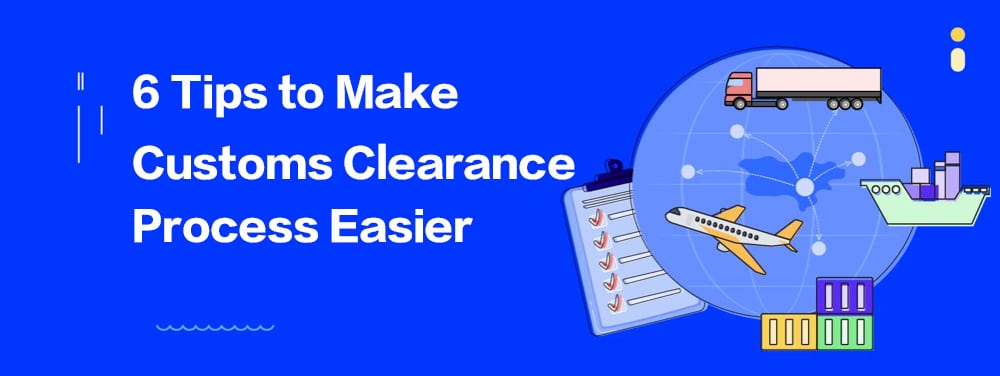
While the customs clearance process may seem simple, it can be overwhelming, especially if you are new to importing and exporting.
The following tips will help make the customs clearance process smoother and more manageable:
1. Hire an experienced freight forwarder or carrier
A carrier or freight forwarder is the most important gift you can give yourself when you start your export business.
The ease you will enjoy by having an experienced and reliable freight forwarder handle your exports is priceless.
2. Make sure your paperwork is complete and 100% accurate
Incomplete paperwork or paperwork with even the slightest error can be very expensive for you. If your paperwork is incorrect or incomplete, the customs department will not clear your merchandise.
Instead, it will remain in customs and you will have to pay demurrage fees. On top of that, your shipment will be shipped late, resulting in missed delivery dates and more hassle for your business.
3. Understand that your shipment will be cleared in each country it passes through
This understanding is valuable when you are deciding which shipping method you want to use to ship your goods.
For example, if you choose to ship by air, your merchandise will only pass through customs in the destination country, saving you a great deal of time.
4. Understand that international trade laws and regulations change frequently
The import/export market is a fluid one, and its laws are constantly changing, so it can be difficult to keep track of things, and the process you followed in the past may not work the next time you use it.
You should keep up to date with trends in the import/export industry so you are not caught off guard.
5. Make sure you package your shipments correctly
It cannot be overemphasized that you must pack your shipments properly. Simply put, a properly packed shipment equals a faster customs clearance process.
In addition to faster customs clearance, properly packaged shipments have less chance of confusion during transit.
6. Ensure that your documents are attached to your shipment in an easily accessible manner
If the paperwork associated with your documents is easily accessible, customs officers won’t have to dig through the shipment to get to them and they will be able to clear your shipment faster.
What Documents Are Required for Customs Clearance Process?

In order to export your goods, there are some documents that need to be prepared.
The following documents are necessary for the customs clearance process:
- Export customs declarations
- Bill of lading (shipping documents)
- Commercial invoice and packing list
- Certificate of origin of your goods
- Insurance documents with detailed policy descriptions
- Export permits and licenses (depending on the type of goods to be exported)
- Other documents depending on the type of goods; such as dangerous goods declarations, inspection certificates, and consular invoices from the importing country
- Exchange control documents proving that the payment for the goods shipped complies with the currency regulations of the exporting country
In summary, it is very important to fill in all export-related documents and details correctly. Otherwise, it may lead to long delays.
What Other Factors Should be Considered for Customs Clearance Process?
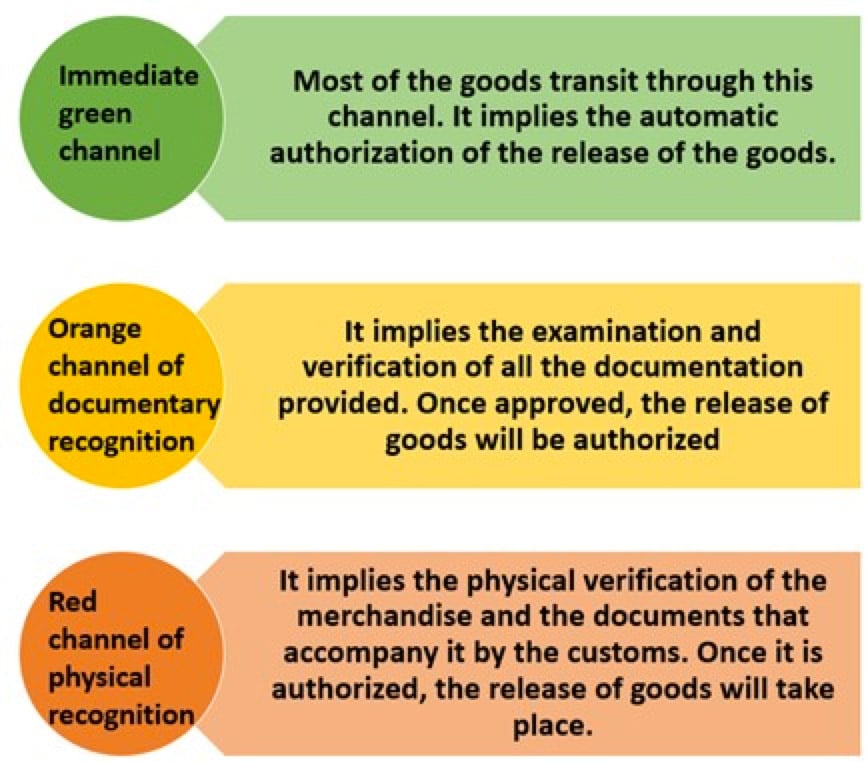
Here are some other important factors that you need to consider in the customs clearance process:
Factor 1. Make sure there are no restrictions on import/export activities to specific countries/regions
For example, if you have goods to import to Senegal, make sure that your goods are allowed to be shipped and received in the country/region where they arrive.
Factor 2. Know the trade agreements between countries, as these agreements affect international trade based on the tariffs set by the country on imports and exports.
For example, Kazakhstan is a party to a free trade agreement between Eurasian Economic Union (EAEU) countries with additional trade advantages, such as greater market access, reduced trade barriers, etc.
Customs Clearance Process FAQ
1. Does every shipment have to go through the customs clearance process?
Yes, the customs clearance process is mandatory for all international commercial shipments of goods.
Because it ensures that no illegal or prohibited items enter a country and that the government imposes taxes and duties on the responsible goods.
2. How to check the status of the customs clearance process?
Your customs broker or freight forwarder can provide you with regular status updates, as they will be involved in every step of the customs clearance process.
3. How long can Customs hold my goods?
The length of time your goods can be held at customs depends first and foremost on the reason for the hold.
For example, if your goods are being held at Customs because of an unpaid balance, it will only be held until the balance is paid, after which it will be released.
4. How do you pay customs fees?
Most importers and exporters will have a freight forwarder or customs broker pay customs fees on their behalf, saving them the hassle of paying them themselves.
If the importer manages the goods themselves, invoices detailing the charges are usually sent to them upon arrival in the country.
These will need to be paid before the goods are released for onward transportation.
5. Who is responsible for customs clearance?
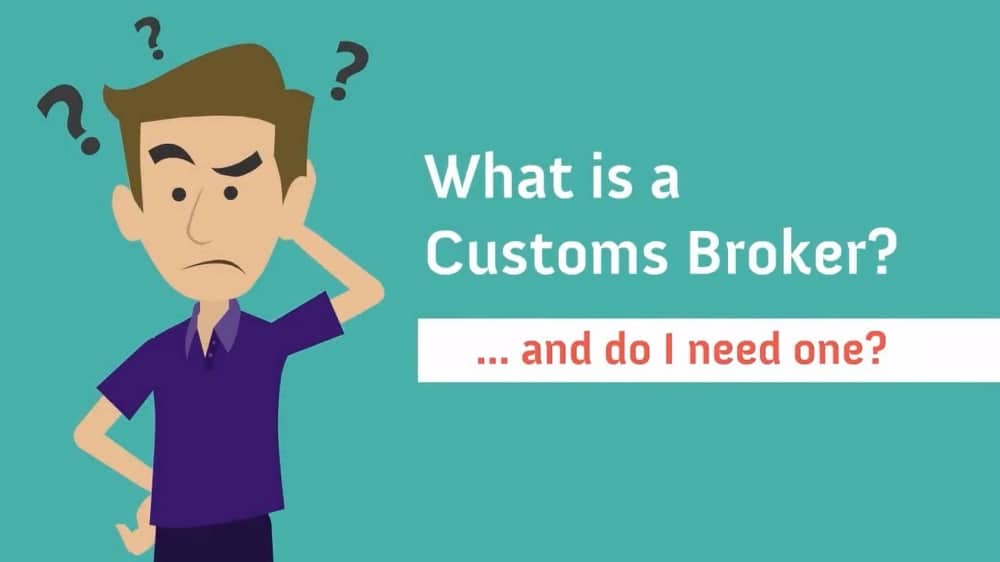
The customs broker is the mediator between the client and the customs authorities and is responsible for handling the processes and procedures related to customs clearance.
He/she also can provide the following:
- Supervises the liaison between the parties
- Communicates information, updates, and requirements from the customs office to the client
- Oversees taxes and duties for importers/exporters
- Complies with the importer/exporter’s shipping requirements, standards, laws, and regulations
6. Is it a good idea to handle the customs clearance process on my own?
While a company is not legally obligated to hire a customs broker or agent to clear imports, it is best to engage the services of an expert for a number of reasons.
Firstly, customs brokers know the customs clearance process like the back of their hand, as they handle the procedure on a regular basis.
Secondly, they know how to deal with potential obstacles and management issues due to their rapport with customs authorities.
Finally, using the services of such an experienced person is an excellent way to avoid mistakes and ensure that no delays or additional fees and fines are charged.
Customs Clearance Process Conclusion
Being prepared is the key to smooth customs clearance! Make sure you know what documents are required, it all depends on the type of product you are sending internationally.
Please note that each country/region has its own rules and requirements. Even the small details, your parcel labeling must be accurate in order to get through the customs clearance process smoothly and quickly!
At Yansourcing, we offer a dedicated customs clearance service as part of our full range of logistics solutions, assisting with customs documentation and all other formalities to ensure the smooth transport of our customer’s goods.
Whether you are looking for a long-term partner to take care of your logistics and customs clearance, or need one-off shipping support, please feel free to contact us to discuss your requirements.
